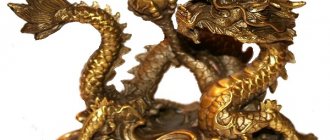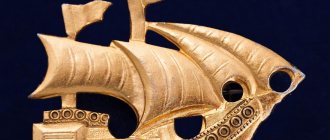Who is the Greek god of wealth? He is not the only one among them. Ancient Greek mythology amazes with its versatility. It combines the morality, ethical principles and culture of many European nations. Mythology is distinguished by special thinking, the study of the world and man's place in it. For help in all their endeavors, the ancient Greeks turned to powerful deities who guided them on the right path and gave them good luck in everything. Who are the Greek gods of wealth? These are the ones that will be discussed in the article.
Attitudes to wealth in Ancient Greece
In Ancient Greece, they were skeptical about wealth: it was believed that making money was much easier than earning a good name and fame. In ancient Greek mythology, there are often cases when a poor person from the people prevailed over the rich aristocracy, which had no authority and respect among the Greeks. Before Greece became an economically developed state, priority was given to intangible areas: medicine, philosophy, science and sports.
Later, agriculture, crafts and trade began to actively develop. It was then that the ancient Greek gods of wealth, fertility and trade came to the fore of the pantheon: Demeter, Mercury, Hermes and Plutos.
At first, the ancient Greeks grew grain crops, but with the development of trade this became an unprofitable occupation, and enterprising people began to trade in the crops that Greece is rich in - olive oil and grapes. Along with the development of trade, the Greek gods of money began to appear.
In parallel, the slave system developed: slaves were the subject of trade, their labor was used in crafts.
The Greek god of wealth is Plutos. With its advent, the concept of “money” becomes popular. They were treated with respect and tried to save every coin. Each policy mined its own money, and trade extended far beyond the borders of Greece. The traveling intermediaries were traveling colonies, traces of which were found in the Black Sea, not far from present-day Sevastopol, Kerch and Feodosia.
With the development of the economy, resellers appeared who changed money among policies. They made bets on interest, gave loans and accepted deposits. Bankers collected huge sums of money, and they had the opportunity to make money from resales.
As stated earlier, the first goddess associated with wealth was Demeter.
Hotei
Hotei is the god of wealth. God Hotei is the god of prosperity, fun and communication. According to legend, he was a wandering monk of Tsitsa who brought fun with him. The monk traveled with a bag, or hotei in Japanese. According to legend, it was from his bag that Hotei extracted everything that people asked for. So Hotei became the god of wealth. It was believed that he had the whole world in his bag. After the monk died, he was considered the eighth reincarnation of Buddha. Hotei is considered the only mortal god from the “seven of fortune.” Hotei is often compared to a laughing Buddha.
God Hotei is depicted with a bag and a coin or piece of gold. His figurine should be placed in a prominent place in your apartment or office, and it will definitely bring wealth.
Demeter
Demeter is one of the most influential and respected goddesses in Greece. She is the goddess of wealth and fertility. Celebrations and honors were held in her honor throughout Greece, especially during the sowing and harvest months. It is believed that without the help and will of Demeter there will be no harvest: farmers turned to her for help and blessings on their crops, and women asked for fertility and the opportunity to bear a child. An interesting feature is that Homer paid very little attention to this goddess: she almost always remained in the shadow of even less powerful gods. Based on this, we can conclude that in the early years other methods of enrichment prevailed in Greece, and agriculture came to the fore much later, displacing livestock breeding. The location of the goddess promised the farmer favorable weather conditions and a rich harvest.
According to legends, Demeter was the first to plow the earth and sow grains in it. The Greeks who witnessed this were sure that the grains would spoil in the ground, but after some time the harvest sprouted. Demeter taught people to care for crops and grow grain, and later gave them other crops.
Jurojin
Jurojin is considered the god of longevity. Jurojin is most often compared to the god Fukurokuju; his appearance, origin, and attributes are the same. Sometimes it is said that two deities live in one body. An old man can be depicted with a staff, sometimes with a musical instrument, the sound of which, according to legend, makes a person look younger, or a turtle, which is a symbol of longevity in Japan. The only difference between the gods is that the shape of their heads is different. God grants not only longevity, but also teaches people honors in old age.
A figurine of the deity Jurojin given as a gift for a birthday prophesies longevity for the birthday person.
Demeter and Persephone - ancient Greek gods of wealth and fertility
Persephone took over her mother's baton and became the goddess of fertility and agriculture. Demeter loved her only golden-haired daughter very much and passed on her wisdom to her. She reciprocated her mother's feelings.
One day, an incredible grief happened that crushed Demeter: her daughter was kidnapped. This was done by the god of the underworld Hades, brother of Demeter. Permission for this was given by Zeus himself, who promised his brother his daughter as a wife.
Unsuspecting Persephone was walking with her friends through green meadows, and then she was kidnapped by her future husband. He hid the girl deep underground, and the grief-stricken mother wandered the lands, looking for her. Demeter did not eat or drink for several months, the productive pastures dried up, and her daughter still did not appear. Zeus told Demeter about the agreement, but she refused to share her beloved daughter with her brother, whom she hated since childhood.
Zeus turned to Hades with a request to return his daughter to her mother, but he agreed with one condition: Persephone would spend two-thirds of the year with her fertility mother, and for one-third of the year she would descend into the underworld, having first swallowed a pomegranate seed. In this way, the ancient Greeks explained the change of seasons and crops.
Demeter and Triptolemus
Triptolemus is also the god of wealth among the ancient Greeks. One day, the goddess of fertility decided to give a gift to the son of King Eleusis - Triptolemus. She taught him to plow the land, cultivate it and gave him grains for sowing. Triptolemus plowed the fertile lands of paradise three times and threw grains of wheat into them.
After some time, the earth brought a rich harvest, which Demeter herself blessed. She gave Triptolemus a handful of grain and a magical chariot that could move across the sky. She asked her mentor to go all over the world, teaching people about agriculture and distributing fertile grains. He followed the instructions of the goddess and set out on his way.
Everywhere the god of wealth visited (in Greek mythology this is how it is described) on his chariot, there were fields with rich harvests. Until he arrived in Scythia, to the king of Linha. The king decided to take all the grains and glory of Triptolemus for himself, killing him in his sleep. Demeter could not allow the death of her assistant and came to his aid, turning Linkh into a lynx. He fled into the forest, and soon left Scythia altogether, and the god of money and wealth among the Greeks - Triptolemus - continued his journey, teaching people agriculture and husbandry.
Daikoku
The god of wealth and prosperity in Japan is Daikoku. The god is depicted in national costume with a mallet in his hands and a bag of rice. Sometimes the god Daikoku is depicted crawling out of a bag or in a bag. He is considered the god who gives wealth.
In Japan, it is believed that the animal rat lives only in rich houses, where there is an abundance of food and supplies.
According to legend, the Daikoku bag contains a lot of rice, coins and jewelry. It is the rat who gnaws the bag while dancing with a mallet, calling luck and wealth into the world, and all the contents pour out of it.
It is recommended to place the talisman in a visible place where it would most often catch the eye. According to legend, it is attention to the talisman that will reward you with prosperity. If you take the palms of Dayokoku and rub it, then wealth and prosperity will come to you.
Plutos
The ancient Greek god of wealth Plutos is the son of Demeter and the Titan Iasion. According to myths, lovers Demeter and Iasion gave in to temptation on the island of Crete and conceived Plutos in a thrice-plowed field. Seeing the couple in love, Zeus flew into a rage and incinerated Plutos' father with lightning. The goddesses of peace and chance, Eirene and Tyche, were involved in raising the boy.
It is believed that Plutos, the god of wealth, was blind and gave gifts to people arbitrarily, without paying attention to their external characteristics or status in society. Those gifted by Plutos received unprecedented material benefits. Jupiter blinded the god, who was afraid that Plutos would be unfair and biased in the distribution of wealth. Therefore, luck in material terms can overtake both bad and good people.
In art, the god of wealth is depicted as a baby holding a cornucopia in his hands. Most often, the baby is held in the arms of either the goddess of fortune or the goddess of peace.
Most often, the name Plutos is associated with Demeter and Persephone. He accompanies and helps everyone who is favored by the goddess of fertility.
The Greek god of wealth Plutos introduced the concept of “goods”. People began to take care of material wealth: save money and increase it. Previously, the Greeks did not attach much importance to material values; they were not concerned about the improvement and standard of living.
For good luck in your career
Lakshmi helps people with pure thoughts achieve social recognition and a high position in society. However, if a person’s heart becomes callous and deceitful, the luck bestowed by the goddess will leave him forever.
For career growth, you should practice a special Gayatri mantra (at least 108 repetitions at a time) for 36 days in a row, starting from the time of the waxing of the moon:
Don't forget that one of the main aspects of the goddess is mercy and compassion. If a person is hard-hearted and does not intend to improve, it will be impossible to achieve contact with the goddess.
Comedy "Plutos"
The comedy was written and staged by the ancient Greek comedian Aristophanes. In it, the Greek god of wealth Plutos is depicted as a blind old man who is unable to properly distribute wealth. He gives gifts to dishonest and vile people, because of which he himself loses all his wealth.
On his way, Plutos comes across a resident of Athens who restores his sight. The God of Wealth sees again, and this helps him to fairly reward people according to their merits. Plutos becomes rich again and regains the respect of the people.
Feng Shui
Eastern countries: China, India and Japan - gave the world seven deities who give wealth, abundance and good luck. Today we know how the seven gods of luck and wealth are depicted in the form of small mascot figures.
According to another belief, the monk Tenkoy learned about the seven blessings that identify each deity. Nowadays, talismans are popular, most often made with wood carvings using the netsuke technique.
Plutocracy
One of the political regimes was named after the god of wealth - plutocracy. The term was introduced at the end of the 19th century and characterizes a form of government in which government decisions are made not by the will of the majority (the people), but by a small group of oligarchic clans located in the shadows. Such a state is ruled primarily by money, and the legitimately elected government is completely subordinate to wealthy clans.
Benzaiten
God Benzaiten is considered the deity of the water element and eloquence. Benzaiten is the only woman in the lucky seven. According to the scripture, she defeated a terrible dragon that devoured children. It was the woman who charmed him with her femininity and eloquence. Benzaiten seduced the dragon and married him, which radically changed the life of her dragon husband. The deity has Indian roots. In India, Benzaiten is considered an image of femininity.
The goddess is most often depicted naked or in beautiful clothes, creating the most sophisticated image possible. In rare cases, the goddess is depicted with a snake or on a dragon. A Benzaiten figurine will bring family well-being to every woman.
Throughout history, many people worshiped the gods and believed in their powerful power. With or without the help of divine power and protection, every person by nature strives to survive, and therefore to thrive. Any person desires more not only in wealth, but also in luck.
Plutos and Pluto: ancient Greek gods of money, wealth and abundance
At some point in ancient Greek mythology, two deities were identified - Pluto (god of the underworld) and Plutos (god of wealth and abundance). This is explained by the fact that Hades has countless riches stored deep underground. There are also many myths that unite these gods.
According to more ancient myths, Hades is the brother of Plutos' mother, Demeter, and is therefore his uncle. But later myths claimed that this was one deity. This is confirmed by the consonance of their names: Plutos and Pluto.
Bishamon
God Bishamon was borrowed from India, where he was the god of war or in other words, the warrior God who protected and guarded the heavens. In Japan, it is believed that Bishamon brings people wealth and early luck, being officially the god of wealth. In Japan, it is believed that the Warrior God fights on the side of good, destroying evil in the world, giving happiness to everyone who asks.
Most often, Bishamon is depicted in armor and a helmet, holding a weapon in his hands. It is believed that if you keep the Bishamon figurine with you or in a visible place, then financial improvements will come.
Cornucopia
This is a symbol of endless wealth, originating from the myths of Ancient Greece. The horn belongs to the goat Amalthea, who fed little Zeus, who was hiding from his father Kronos on the island of Crete, with her milk.
There is another legend about its origin. Hercules twisted the horn of the river god during the battle. He showed mercy and returned the horn to its owner. He did not remain in debt and gave the world a cornucopia filled with riches.
In art, this symbol is depicted upside down, through a hole in which various fruits are ejected: fruits and vegetables, sometimes coins. Most often, the cornucopia is held in the hands of the Greek god of wealth - Plutos. Some sculptures with this symbol depict the goddess of justice - Themis.
In Ancient Greece, coins were minted with the image of a cornucopia on the reverse side. This was supposed to attract new money and help retain their property.
In the Middle Ages, the cornucopia was transformed into the Holy Grail, which is the source of eternal life and wealth.
Seven gods of happiness, mystical Japan
Japan. A country of high technology, order, discipline and...ancient beliefs and traditions. Today is a story about deities - the seven gods of happiness. Their images: netsuke, engravings, street statues are found literally at every step in Japan; for many centuries, each of the Seven has been worshiped by a huge number of people.
On New Year's Eve, when all of Japan decorates their homes for happiness and good fortune, a magical treasure ship (takarabune) enters the port and lands the Shichifukujin - the seven gods of happiness - ashore. They are ready to give happiness to anyone they meet and help even with the most ordinary and everyday request. It is not so easy to meet them, because there are many who want to find happiness. The ship itself sails from a better world that lies on the other side of the sea. Takarabune - a treasure ship - is loaded with gold and rice, wisdom and longevity, health, and good luck. On the sail of the ship is the Chinese character “baku”, which denotes a mythical animal that averts nightmares.
The gods of fortune appeared in Japan, in the ancient city of Kyoto in the 14th century and they are not all local residents of Japan. The gods came from different countries: China, India and only one of them was Japanese.
The Japanese, like all people on our planet, tried to give an answer to what seemed to be such a simple, but such an insoluble question: “what is happiness.” And so, in the 17th century, the Japanese military ruler Tokugawa Ieyasu, having destroyed all his enemies, having come to the coveted power, having received everything that a mere mortal could dream of, instructed his spiritual mentor, the monk Tenkai, to “catch happiness by the tail,” namely , define this feeling. Tenkai formulated seven types of happiness: justice, material well-being, benevolent attitude, generosity, fame, long life, dignity . Each of the magnificent Seven was assigned its own role, each was assigned its own type of happiness.
Why seven? The Japanese, like much of the rest of the world, consider the number seven to be magical. In Japanese folklore, seven is a lucky number. The “seven Buddhist treasures” and the seven gods of luck are known. Japanese Buddhists believe that reincarnation occurs only seven times, and seven weeks of mourning should be observed after the death of a loved one.
In Japan, there are seven magical spring herbs that are added to rice porridge: Japanese parsley, shepherd's purse, cucumber, chickweed, chickweed, turnip, and rhizome. Spring herbs protect against diseases and expel evil from the body.
Magical autumn herbs, seven in number: Japanese clover, brisket, patrinia, Chinese sapling, cloves, sugar cane, arrowroot. These herbs are inedible and are used to decorate houses during the September full moon holiday.
Now let's take a closer look at each of the seven gods of happiness!
Ebisu. God of happiness and good luck.
He is the only one of the seven gods who is of Japanese origin. The first-born of Ebisu's parents was born without bones due to the parents' incomplete observance of the wedding ritual. At birth he was named Hirako - tadpole. Before his third birthday, Hirako was carried out to sea on a reed boat, which, after long wanderings on the waves, washed up on the shore of Hokkaido, where he was picked up by the Ainu Ebisu Saburo. Overcoming many difficulties, Hirako grew legs and arms and at the age of three turned into the god Ebisu. He is a little deaf, but cheerful and friendly, which is why he is often called the laughing god. Depicted wearing a high hat with the sacred Tai bream. It is very difficult to catch a Tai fish with your bare hands in clear heavenly water; it is also difficult to achieve peace of mind and enlightenment. At the end of March and beginning of April, these bream acquire a bright red color and go to the shores of Japan to spawn. Since cherry blossoms bloom at this time, sea bream in breeding plumage is considered the king of fish in Japan.
Ebisu was originally worshiped by fishermen and residents of fishing villages. They prayed to God for an abundance of fish in the sea and calm winds, and good luck in sailing. And to this day, fishermen set up a small shrine to him at the entrance to the bay or on the top of the cape, cut the first catch into sashimi and present it to Ebisu. Over time, this character became the deity of trade in Japan. The fish in Ebisu's hands began to be perceived as a symbolic reward for honesty in trading matters.
Ebisu was also the patron of various crafts, so netsuke carvers sometimes depicted him as a master of a certain profession, for example, a cicada catcher. In rural areas he is revered as the god of rice fields. Ebisu helps sailors in sailing, merchants in trade, and housewives in the kitchen.
The twentieth day of each month is considered Ebisu Day in Japan, and from January 9 to 11, Toka Ebisu is held - a holiday in his honor. The main event of the holiday is the ceremonial parade. A huge image of Ebisu is carried on a stretcher, followed by a motley crowd of musicians, geishas, celebrities and "luck girls" chosen from the finest beauties.
Local shops and restaurants offer special discounts at this time: since Ebisu personifies honest business dealings, merchants try to “pray” the thirst for profit by apologizing to their patron.
At Nishinomiya Shrine (Hyogo Prefecture), a special ceremony is held on the tenth day of the first moon (now January 10). The ceremony is called "Tooka Ebisu", and it begins with the ritual of opening the gates at 6 am. The first three people to appear before the Ebisu Shrine (which is 230 meters from the gate) will become “people of fortune” and will be especially blessed.
And yes, you have to fight for luck!
Daikoku (Daikoku-ten) is the patron saint of peasants, the god of wealth, brings wealth and prosperity, full bags of rice, keeper of the kitchen and giver of food.
The figurine of Daikoku is easy to recognize: good-natured, in peasant clothes, with a bag, a sacred mallet and a rat. The bag contains wealth, but the rat will only appear in a rich house: in a poor one it simply has nothing to eat. The bag itself is filled with magical rice, and when the rat gnaws holes in it, the rice spills right into your hands. Daikoku dances and taps the sacred mallet, that is, forges happiness: with each blow there is more happiness and prosperity in the world. So let him knock to his heart's content, because when Daikoku shakes his mallet, coins miraculously fall out of the air. Daikokuten is of Indian origin, but there it is a wrathful deity, guardian of faith, six-armed and three-faced. And Daikokuten reminds us of Santa Claus, with a magical wooden hammer in his hand, which allows him not only to break grains of rice, but also to work miracles. Daikoku was featured on the first Japanese one-yen banknotes, issued in 1885.
The only lady, Benzaiten. Goddess of happiness, love, beauty and art.
In Indian mythology, she was the deity of rivers (“Saraswati” means “flowing water” in Sanskrit), and is therefore associated with everything that “flows”: music, eloquence, literature. In her hands is a Japanese lute - a biwa. Benten came to Japan, just like other Indians, along with Buddhism and soon became a favorite. Near Kamakura there is the famous island of Enoshima. Legend has it that once upon a time there lived in a cave a terrible dragon that swallowed children from a nearby village.
In the 6th century, Benzaiten came to Japanese soil to protect people from a terrible monster. Hanging in a cloud above the cave, it caused a powerful earthquake. After that, she entered the dwelling of the frightened dragon and... married him. Love transformed the dragon: he became obedient and radically changed his behavior. In memory of this event, the island of Enoshima rose from the sea. It rises like an amazing rock above the surrounding sandy shallows. Here, in the middle of the sea, is the main sanctuary of the goddess.
Water always splashes next to the figure of the goddess, and you can often find a well in temples - a white snake lives there, which is a harbinger of good luck when it comes in a dream.
Although Benzaitenen symbolizes friendliness, she is also known to be a very jealous goddess. To depict jealousy, white snakes are sometimes painted that encircle the goddess. In former times, musicians who played the biwa preferred not to marry because they were afraid that the goddess would become jealous and deprive them of their ability to play.
Those families who wanted to have beautiful daughters also prayed to Benten, but the husband and wife had to read the prayers separately and never do this with each other. There was a belief that if a couple prayed to this goddess together, they would be destined to separate.
However, despite her jealousy, the goddess often showed sympathy. She is believed to have helped middle-aged, childless couples conceive as an answer to their prayers.
Nowadays, Benzaiten lovers write wishes on such signs with a love heart.
The bald monk, the cheerful Hotei-osyo is the god of abundance, the embodiment of happiness and carefreeness. It is easily recognized by its huge womb. For the peoples of the East, the belly is the refuge of the soul, and they clearly associate the fat man who came from China with spiritual breadth and generosity.
All the figurines of the Laughing Buddha, as Hotei is also commonly called, are similar to each other: a bald, short, pot-bellied man with a huge bag. In the bag, of course, there is money: silver and gold coins, precious stones and jewelry. But there is another version about the contents of the magic bag: it contains all human bitterness and sorrow. Hotei makes sure that the bag is always tightly tied, protecting people from disasters and problems.
Hotei figurines are very popular for attracting good luck and big earnings to your home. It is better to choose a golden or white figurine: the deity is capricious and has its own preferences. A cheerful god can help lonely people find a family: to do this, you need to buy a figurine in which Hotei is surrounded by children.
Activating the talisman is very simple: you just need to rub the figurine on the belly. In ancient times, the Japanese believed that if you rub Hotei’s tummy three hundred times while thinking about what you want, your wish will definitely come true!
There are many stories and legends about Hotei. One of them says that the merry fellow Hotei used to be a very handsome man and all the women who ever saw him fell in love with him. And in order not to break fragile women’s hearts, Hotei decided to become small and fat!
Another legend says that in the 10th century. The well-fed monk Qi Qi walked around the villages of China. As a wandering monk, he sometimes slept outside in the snow and blizzard, and his holiness prevented him from freezing. However, he often indulged his human weaknesses and gladly consumed meat and fish forbidden to the clergy. When passers-by asked what he was carrying in his bag over his shoulders, Qi Ci answered that he had collected all the sorrows of the world in it, and now everyone could only laugh! Where this mysterious wanderer appeared, health and good luck came to people. His jokes could make everyone laugh, rich and poor, even seriously ill people! It was believed that the monk distributed food and benefits to the poor from his never-ending bag.
Later, the mysterious contents of his bag became associated with Ta-Khun - the Great Emptiness, the progenitor of the entire surrounding world. The monk’s belly was no longer perceived simply as a symbol of the well-being and breadth of his soul, but also as an abyss in which all the suffering and sorrow of the world disappear.
Hottei is especially popular among bartenders and restaurateurs; the god of abundance inspires people to eat and drink a lot.
Fukurokuju, god of wealth, happiness and longevity. Gives wisdom, intuition, helps to make a scientific career.
His name consists of three hieroglyphs: “fuku” - happiness, “roku” - reward for work, “ju” - longevity.
Country of origin China. He can be recognized by his unusually high forehead and long white beard. In his hand he holds a staff, to which is attached a scroll with sutras. They say that this scroll contains all the wisdom of the world. Among his seven comrades, he is the only one who is able to resurrect from the dead. He lives in a palace, which is surrounded by a magical garden where the herb of immortality grows. In addition, he can do without water and without food. He loves to play chess. The following legend is connected with this: one day a farmer, returning home, saw two old men playing chess. The farmer stopped, watching the game, and it seemed to him that after each move the beards of the opponents became longer and longer. The match was long, and the bearded, long-headed old man treated the peasant to strange-tasting fruits to satisfy his hunger. A long time passed when the farmer finally noticed that the day was over and politely said goodbye to the players. Rushing home, he discovered that the house no longer existed. The stunned farmer eventually learned that 200 years had passed while he had been watching the chess game.
After living for many years, Fukuruju turned into a turtle, a symbol of immortality and the wisdom of the Universe.
Fukuroju shapeshifting figurines are very popular in Japan: when looking directly at, the human appearance of the deity is revealed, but if the figurine is placed on its stomach, a turtle appearance is revealed. His figures help to quickly make important and wise decisions, and help students remember science well!
Jurojin (“long-lived old man”) is the god of longevity and immortality. This kanji name literally translates to "Man Who Lives Long." He is considered the reincarnation of the Star God of Longevity, who monitors life on Earth and knows how long someone is allotted to live: he has a scroll, and the life spans of all creatures living on our planet are written there.
He is called the patron saint of scientists and scientific success. Jurojin is depicted with a staff made of peach wood - the Rod of Ruyi. This is a wand of wish fulfillment and happy omens. From Chinese, “ruyi” is translated as “whatever you wish.” Jurojin is dressed in a cloak and cap of a scientist and teacher. The god is bald, but has a gorgeous beard - its length symbolizes the number of years he has lived.
The god is often accompanied by a deer or turtle; according to legend, this deer is at least 1500 years old. According to legend, if you eat the meat of this deer, a person can live up to 2000 years.
Despite his advanced age, he is known as a lover of female company, and is not averse to drinking sake - after all, true wisdom cannot be achieved by avoiding fun, while always remaining serious! God also has a magical musical instrument, and when it is played, all good wishes come true, and people around become rejuvenated.
Jurojin and Fukurojin are so similar that they are sometimes considered different spirits in the body of one elder.
They say that one day Jurojin was invited to a holiday at the Emperor’s court, and there he began to boast that he could drink as much wine as he wanted. According to this Chinese legend, he then drank one koku (160 liters) of rice wine (sake), but was completely sober when he appeared before the Emperor the next morning expressing words of gratitude for a pleasant evening. He predicted a long and prosperous reign for the Emperor and then disappeared into a white fog (perhaps it was wine fumes?)
Bishamonten is the god of wealth and treasures, guardian of the North, punishes Evil, cures diseases, expels demons. Symbolizes dignity. His middle name is Tamonten - this is his name as one of the four heavenly guardians. He is strong and merciful. And in Sanskrit his name means God who hears everything.
Bishamonten is the patron saint of warriors, and therefore is dressed in military armor and holds a spear in his hand. In his other hand he holds a small pagoda. The pagoda is a treasure tower from which he gives wealth to all good people. But, on occasion, it can take your wealth back, so you must always remain good!
God Bishamon was borrowed from India, where he was the god of war or in other words, the warrior God who protected and guarded the heavens. There is a beautiful legend: more than 6 million years ago, the formidable King of the Conquerors of Evil descended from Venus to Earth, on the top of a mountain. He came down for a reason, but with a great mission to save humanity. For millions of years, his great spirit lived on the top of the mountain and ruled people's lives. And so, in 770, the monk Gantei saw a white horse on the slope of that mountain and went after it. The horse led the monk to a sacred place, where enlightenment descended on the monk and he became the reincarnation of Bishamon, the Guardian of the Northern Limits of Paradise.
In Japan, it is believed that Bishamon brings people wealth and early luck, being officially the god of wealth. The warrior god fights on the side of good, destroying evil in the world, giving happiness to everyone who asks. It is believed that if you keep the Bishamon figurine with you or in a visible place, then financial improvements will come.
His animal is a dove. Because Bishamonten is the patron saint of warriors, he is often associated with the Shinto deity Hachiman, the god of war. Tsurugaoka Hachimangu is an ancient temple where warriors asked for good luck in battle, the main shrine of Bishamon.
Since then, a huge number of pigeons have lived near the temple complex.
And today we can see flocks of pigeons on the roofs of temple buildings, and the Tsurugaoka Hachimangu complex itself is the main purpose of pilgrimage to these lands.
In the 14th century the cult of the seven gods reached its peak. This was especially true in the capital of Japan, Edo, where there was a custom of annual pilgrimage to temples dedicated to one or another god of happiness. This pilgrimage took place in the first month of every year. And now those who urgently need divine support or who want to escape from the daily whirlwind and, under the shadow of sacred temples, indulge in unhurried thoughts about the eternal, go on a small journey - a pilgrimage to temples associated with the gods of luck. The temples are located close to each other so that believers can visit all seven temples in one night. There are several such “ring routes” in Tokyo. The most popular of them runs along the banks of the Sumida River and is approximately three kilometers long. There are signs along the entire path, so it is difficult even for a stranger to lose his way. You can go the whole way alone, but there is also the opportunity to join a group of pilgrims. In each of the temples, a visitor can put a colorful stamp on a specially purchased card, which thus itself becomes a talisman and a “guarantee” that luck will not abandon its owner. Pilgrims buy small figurines of the seven gods in the temples - separately or all together on a small treasure ship - Takarabune. After all, it is loaded not only with gold and rice, but also with wisdom, longevity, health, and good luck.
Most often, temple visitors buy the ship depicted in the engraving.
This drawing should be placed under your pillow on New Year's Eve. The Japanese are confident that the first dream in the New Year is prophetic and determines fate for the whole year. It is best if in a dream you see Mount Fuji, hawks or... eggplants.
Noble Mount Fuji, a smart and strong bird, but an eggplant? This came from a statement by Shogun Tokugawa: when he learned about the cost of the first eggplants of the season, he was very surprised and said that only Mount Fuji and Mount Ashitaka (“taka” - hawk) were more expensive (higher) in his province. It is also said that Mount Fuji, falconry and the first eggplant of the season were the shogun's favorite things. So a dream about an eggplant is perceived as a clear forecast of a happy year.
Those who are unlucky with their dreams, who dream of something unpleasant, can get rid of the obsession by throwing a leaf with the image of Takarabune into a stream or river in the morning. Then a bad dream - a harbinger of bad luck - will be carried away by the waves far out to sea.
Mercury (Hermes)
Mercury is the god of wealth, trade and the patron of thieves. He is depicted wearing a helmet and sandals with wings, a conciliatory staff and a bag filled with gold coins.
The Greek god of wealth, Mercury, was borrowed by the Romans from the Greeks after their conquest. In Ancient Greece, Mercury was called Hermes. Originally it was the god of cattle and cattle breeding. During the time of Homer, he became a mediator between the gods. It was then that he received wings on his sandals and helmet to move quickly while performing various tasks. He also had a reconciliation stick made of gold, with its help he resolved conflicts and disputes.
With the development of agriculture, he became the patron saint of bread and grain, and later, when market relations were actively developing, he became the god of trade and the patron saint of merchants. People turned to him for help in out-purchases, trade transactions and exchanges of goods.
It is believed that it was Hermes, the Greek god of wealth, who gave the Greeks numbers and taught them how to count. Before this, people paid by eye, without paying much attention to the amount of money.
Even later, Hermes became the patron saint of thieves: he was depicted with a wallet in his hands or with his hands tied next to Apollo - a hint of theft.
When the Romans conquered Greece, they borrowed the god Hermes, renaming him Mercury. For them it was the god of prosperity, enrichment, trade and profit.
Nowadays, the image of Mercury can be found on the emblems of banks, large trading companies and auction exchanges.
Slavic gods of wealth
In pagan Rus', the person who had a huge barnyard was considered rich and lucky; in other words, wealth was measured by livestock. To increase their wealth, people prayed to Veles, the god of wealth, popularly called the god of cattle.
Scripture says that it was Veles who set the world in motion. Such concepts as day and night, seasons, bad and good appeared. Veles taught people to appreciate what they have and to achieve more by overcoming difficulties.
To attract good luck from the god of wealth, it was customary for the Slavs to leave donations to him or, one might say, a tribute from everything that was added to their lives. Whether it was a harvest harvested in the fall or a profitable trade deal. Donating what was acquired was considered a guarantee of Veles' patronage in the future.
The Slavs represented the pagan god of wealth according to one source:
- a man dressed in bull's skin;
- a richly dressed old man with a beard made of wheat.
After baptism in Rus', the functions of Veles were transferred by people to St. Nicholas the Wonderworker, whose image to this day is similar to the description in fairy tales and chronicles of the god Veles.
King Midas and gold
In Ancient Greek mythology, Midas was the king of Phrygia. From childhood he knew that he would be a rich and influential man: all the signs of fate pointed him to this. Even small ants brought grains and put them in his mouth.
One day, Silenus, the teacher of Dionysus, came into the possession of Midas. He got lost in the forest when Dionysus was leading his army through Phrygia. King Midas saw this and poured wine into the streams passing through the forest. Silenus drank water mixed with wine and immediately became drunk. Unable to get out of the forest, he wandered through it for a long time until Midas met him and took him to Dionysus.
Happy Dionysus invited Midas to make any wish. He wished for a “golden touch”: that everything his hand touched would become golden.
Dionysus obeyed the king's wishes, and he arranged a magnificent celebration, setting the table with various drinks and dishes. But at the table he realized that he would die of thirst and hunger, because food and drinks in his hands became gold.
The king rushed to Dionysus with a request to deprive him of the gift, and he ordered him to bathe in the Pactolus River. Midas lost his ability to turn everything into gold, and after that the river became golden.
Nowadays, the expression “Midas touch” means the ability to quickly earn money out of thin air and be successful in all endeavors.
Ebisu
The god of luck and happiness, Ebisu, is the only one of the seven happiness of Japanese origin, considered the god of hard work. According to legend, a boy named Hiruko was born without arms, legs or bones. At the age of one, he was carried away on a boat to the sea, where he had to survive in inhumane conditions. Fate subjected him to terrible trials. He swam for a long time until he washed up on the island. He was saved by a fisherman named Ebisu Saburo, who subsequently raised him as his own son. When the boy was three years old, the gods had mercy on the baby, taking into account all the difficult trials he had passed. So Hiruko’s arms and legs grew, and he became a deity named Ebisu.
God Ebisu is depicted as a cheerful old man with a fish in his hands and a fishing rod or fan. Most often, the gods Ebisu and Daikoku are placed together; according to legend, their strength together is more powerful and will definitely bring happiness.
Kairos
Kairos was a revered deity among the ancient Greeks. He was the patron of chance - a happy moment that can give good luck and prosperity if you grab it in time. He is always somewhere close to Chronos, the patron of the sequence of time. But unlike Chronos, Kratos is very difficult to meet and catch: he appears only for a second and instantly disappears.
The Greeks believed that Kairos could show them a happy moment in which luck would smile on them and the gods would be supportive in all their endeavors.
God moves silently and quickly among mere mortals; meeting him face to face is a great rarity and luck. At this moment, the main thing is not to get confused, grab Kairos by the long forelock and ask fate for everything you want. Missing a chance is a great sin, since it is given only once in a lifetime.
Kairos is depicted as a young man with wings on his back and wearing sandals. He has a long golden curl on his head, by which you can try to grab him. Kairos holds scales in his hands, which indicates that he is fair and sends good luck to those who work hard and wish for success.
Lakshmi in Vedic culture
Find out what awaits you today - Horoscope for today for all zodiac signs
Due to numerous requests from subscribers, we have prepared an accurate horoscope application for mobile phones. Forecasts will arrive for your zodiac sign every morning - it's impossible to miss! Download for free: Daily Horoscope 2020 (available on Android)
Who is Goddess Lakshmi and why is she worshiped by millions of people in the world? The Vedas claim that the goddess emerged from a lotus flower that floated in the primordial ocean of life. In many images one can see Lakshmi with a lotus emerging from the waves of the ocean. The four arms of the goddess symbolize 4 aspects:
- prosperity;
- physical pleasure;
- virtue;
- liberation of the soul from the captivity of sin.
The goddess patronizes successful and hardworking people, loves luxury and the enjoyment of earthly riches. She bestows abundance, material wealth and wisdom on her favorites. Lakshmi can help in running a business, remove obstacles and open the way to achieving a goal. However, a person who turns to a deity for help must have a sincere heart and not use the protection of heaven to the detriment of competitors.
When a person needs luck and luck, he turns to Ganesha and Lakshmi. If a person is haunted by failures and bad luck, it is believed that the goddess Lakshmi has left his home. To ask for prosperity, choose an image of the goddess in golden tones. Pink-faced Lakshmi is asked to show mercy and compassion, because the anger of the goddess deprives a person of success in life. If the goddess is depicted next to Vishnu, she is asked for the well-being of the home.
Tyukhe
In ancient Greek mythology, she is the goddess of luck, happy fate and the patroness of chance. Tyukhe is the daughter of the ocean and Tetia (mother of the gods and patroness of all rivers).
Tyukhe became a cult deity when ordinary people's faith in the gods and their abilities was shaken. The ancient Greeks believed that Tyche accompanies people from birth and throughout their lives. Many cities considered Tyukhe their patroness, her image was minted on coins, and her statues decorated houses.
The goddess was depicted wearing a crown and with the main attributes: a wheel (symbolizing the changeability of luck, hence the expression “wheel of fortune”) and a cornucopia. Tyche often holds in her arms little Plutos, the god of wealth, whom she raised on the island of Crete in secret from his father Zeus.
Worship of the goddess of fortune
Many researchers believe that the veneration of Fortune passed to the Romans from the ancient peoples of Italic origin. This means that the cult of the goddess was one of the oldest in Rome.
Servius Tulius made a significant contribution to the popularization of the veneration of Fortune. He was an ordinary slave, but managed to gain freedom, became rich and, amazingly, even became a king. Tulius always believed that he was obliged to the patronage of Fortune, because it was she who helped him in all matters. Probably, his amazing example inspired other people to venerate the flighty goddess with a difficult disposition.
Fortune had a fickle temper Sculptor Charles Samuel "Goddess Fortuna" Was acquired by the Leon Courtin-Marcel Boucher Foundation and loaned to the Royal Museums of Art and History in Brussels, Belgium
The real flowering of the cult of Fortune was observed during the reign of Augustus. The emperor himself considered the goddess his patroness, temples were erected in her honor, and holidays were held.
Images of Fortune at that time were often found on coins or household items - vessels, lamps, home decorations. I think they were a kind of talismans designed to attract good luck, and the Romans believed that in this way they could gain the favor of Fortune.
A giant statue of the goddess was erected on the Roman Capitol, and her temple in Prenes has survived well even to this day. Moreover, when the capital of the empire was transferred to Constantinople, the Romans began to build sanctuaries to their gods, and the largest and most luxurious was the Temple of Fortune.
Italian artist of the 18th century “Temple of Fortune and the Temple of Vesta in the distance” The painting is in the National Gallery of Art, Washington, USA
Fortune
When the Romans conquered Greece, they adopted the goddess Tyche, calling her Fortuna. She is the goddess of luck, happiness, prosperity and success.
According to mythology, Fortune shed her wings when she arrived in Rome and promised to stay there forever. Over time, the cult of Fortune developed rapidly, eclipsing the other gods. She was thanked for sending good luck and even for failures and grief. She was also called the First Born, Happy, Kind and Merciful. All babies and newborns were dedicated to her; her touch determined the future fate of a person.
Later, when moral and ethical foundations began to gradually collapse, the goddess Fortuna became the patroness of the hearth, love and family happiness for both women and men.
Fortune adorned Roman coins and was depicted in art as a woman with a cornucopia on her shoulder, from which wealth poured out - fruits, vegetables and gold. Sometimes she held a chariot in her hands or stood on the bow of a ship. This symbolized the fickleness of fate.
Many Greek gods of wealth and fortune live on in mythology to this day. Is there any truth to this or is a myth always a myth? Everyone has their own opinion on this matter. In any case, it is interesting and educational.
Three-legged toad and Ganesha
The Chinese god of wealth Ganesha is depicted with the head of an elephant with 2, 4 or 8 pairs of arms, each containing different gifts, riding on a tiger or a small round pedestal. According to experts, such a deity brings a person to the level of wealth that he is capable of achieving. New opportunities open up for him and profitable partnerships are offered.
The figurine can be made of copper, plastic, bronze and wood. Don't skimp on buying it. The larger the Ganesha, the faster and more effective the talisman will act. It’s good if the figurine is decorated with precious stones, this will attract even more material wealth.
Ganesha should be placed in the wealth zone or on the desktop. It is advisable to place money under the figurine, and place candy or other sweets near it. In this way, you will be able to quickly gain the favor of this deity.
The three-legged frog is the most popular symbol of wealth in Feng Shui. She is also the personification of wisdom and longevity. Usually a toad is depicted on money, holding a coin in its mouth. It must be placed in such a way that it faces the inside of the house.
Remember, the gods love respect and attention. Bring them gifts, light candles, incense. Soon you will notice how material wealth has ceased to be a problem, and life is filled with happiness and prosperity.











